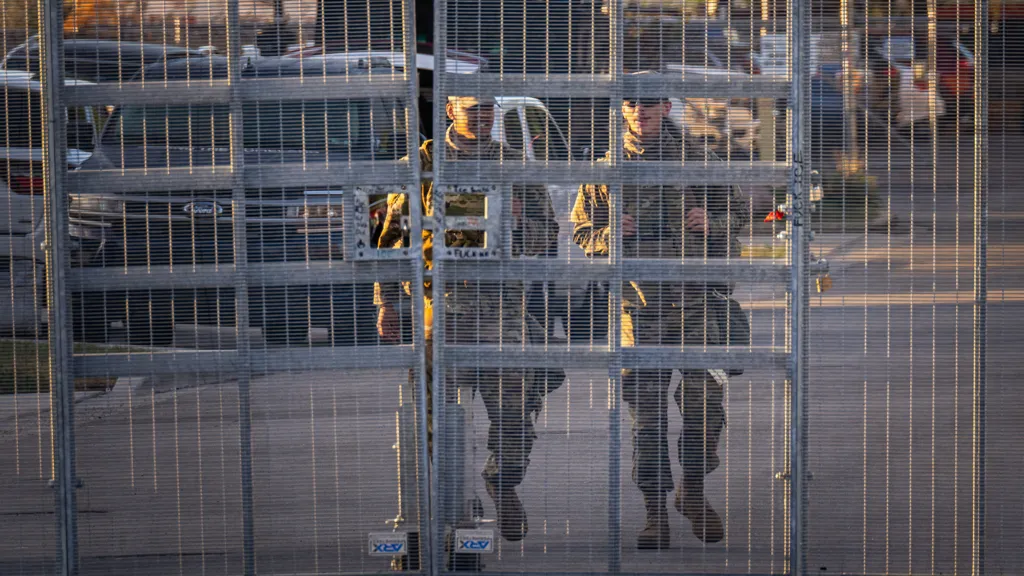A federal appeals court on Saturday ruled that National Guard troops could remain in Illinois under federal control. But the appeals court left in place, for now, a ruling by a district court judge on Thursday that bars those troops from being deployed into the streets over the objections of Gov. JB Pritzker of Illinois and other top Democrats in the state.
The unsigned one-page order by the U.S. Court of Appeals for the Seventh Circuit did not address the question of whether President Trump exceeded his legal authority in attempting to send troops into the Chicago area to protect federal property and federal agents carrying out his deportation efforts.
The order also did not include a rationale for the decision, which is temporary. Appeals courts often issue short, temporary rulings on time-sensitive matters. Courts generally issue lengthier rulings once judges have had time to review and consider arguments from each party.
The ruling on Saturday allows 200 Texas National Guard troops to remain in the Chicago area without potentially being in violation a judicial order, so long as they are not deployed. Another 300 members of the Illinois National Guard have also been activated, according to a statement by Northern Command, which said the troops "are conducting planning and training" but not "operational activities."
On Friday, Judge April Perry of the Federal District Court for the District of Northern Illinois issued a 51-page opinion explaining why she had placed a two-week block on both the deployment of National Guard troops and their federalization. Her opinion questioned the candor of administration officials. Contrary to the administration's stated goals of enforcing immigration law and reducing crime, the opinion said, Mr. Trump's decision to bring in the military "is likely to lead to civil unrest."
"The significance of the public's interest in having only well-trained law-enforcement officers deployed in their communities and avoiding unnecessary shows of military force in their neighborhoods cannot be overstated," wrote Judge Perry, a former prosecutor and nominee of President Joseph R. Biden.
Saturday's ruling largely maintained the status quo in Chicago, where immigration agents have clashed with protesters in recent weeks as the agents have pursued people suspected of being in the country illegally.
A similar court fight over the White House's efforts to deploy the National Guard in Portland, Ore., is before a different appeals court, the U.S. Court of Appeals for the Ninth Circuit. In a hearing last week, two members of a three-judge panel from that court sounded open to the administration's arguments for why a military response was legally justified, but they have not yet ruled.
Lawyers representing the Trump administration have argued that National Guard troops are needed to protect immigration agents. The Illinois attorney general's office called the deployment unnecessary, describing it as "startling, unbounded, limitless and not in accord with our system of ordered liberty of federalism."
Saturday's ruling did not indicate how soon the court might issue a formal decision. It said the National Guard members who traveled to Illinois from out of state may remain in the state unless a judge orders them to return home.
On Saturday afternoon, demonstrators chanted near an ICE facility in Broadview, Ill., a suburb of Chicago that has regularly drawn protests and prayer vigils.
A few protesters were arrested, officials said, accused of moving beyond an area that had been designated for demonstrations as a federal immigration crackdown has ramped up in the Chicago area since early September. As vehicles came in and out of the facility, several dozen people waved signs and chanted from the designated protest area.
